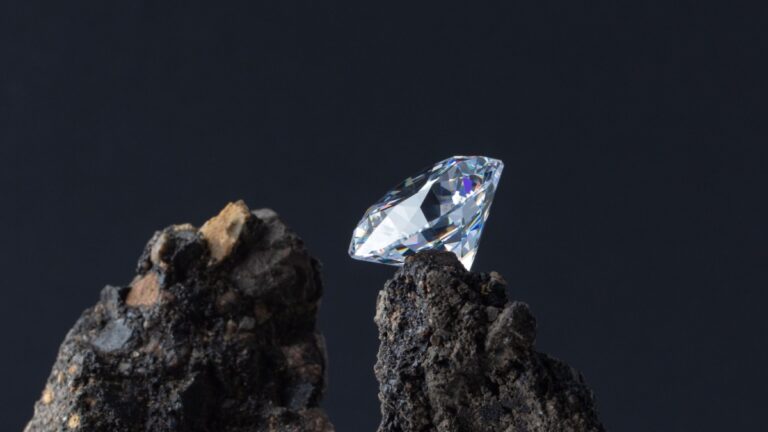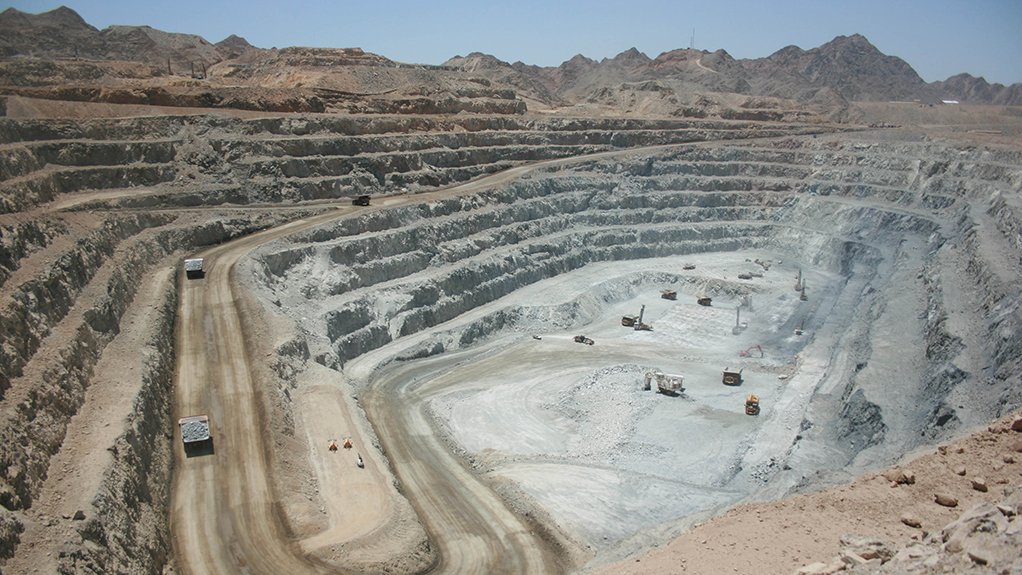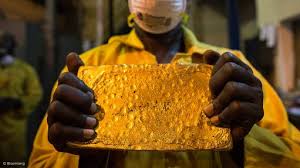Precious Metals

Dark clouds gather over one of South Africa’s oldest companies

Anglo American has once again cut diamond production from De Beers in response to market conditions and lacklustre sales, with further options to reduce output on the table.
This was revealed in Anglo American’s production update for the third quarter of its financial year, in which the company said it expects output to meet its expectations set earlier this year.
However, one pain point for the company is the continued pressure De Beers has faced in the diamond market.
Once the jewel in Anglo’s crown, De Beers has increasingly become a problem for the mining giant’s management team.
To ward off a takeover from the world’s largest miner, BHP, Anglo American announced a wide-ranging overhaul of its business.
This included the sale or demerger of De Beers alongside its platinum business and coal mines in Australia.
The company’s willingness to dump De Beers may signal its desperation to effect a successful turnaround, but it is more likely to reflect the rapidly declining demand for natural diamonds.
“As previously announced, we reduced rough diamond production from De Beers in response to market conditions,” Anglo CEO Duncan Wanblad said.
In February 2024, Anglo wrote down the value of De Beers by $1.6 billion (R30 billion at the time) and cut its production of diamonds.
Limited production has been part of a wide range of efforts from Anglo to artificially boost diamond prices after the market effectively ground to a halt at the end of 2023.
However, for the first time in a century, De Beers and other diamond miners do not have a stranglehold on the supply of the precious gem as manmade alternatives have grown strongly.
Historically, miners have been able to increase their prices in line with the rising cost of mining diamonds by artificially limiting supply. This is not the case anymore.
As a result, investment analyst at Sanlam Private Wealth Christiaan Bothma said that it is unlikely that Anglo will get full value for De Beers in the current market.
While Anglo has said it will not be rushed into selling De Beers, the current environment of declining sales will not change anytime soon.
Peter Major, director of mining at Modern Corporate Solutions, said the rise of manmade diamonds is the scariest threat the industry has faced in its history.
He explained that demand is not declining because people cannot afford diamonds anymore but because manmade diamonds are taking over the market.
“This is probably the scariest threat diamond mining has faced in the past 100 years since supply from South Africa threatened to flood the market,” Major said.
Diamond miners are facing an almost perfect storm. Demand for their product is declining, while supply is increasing due to manmade alternatives entering the market.
At the same time the costs of mining diamonds are rising, the price of the gems is declining – putting miners under severe pressure.
Major said Anglo’s production cuts have failed to bolster prices, and demand continues to remain subdued.
“On the corporate side, this may mean the business is too risky to hang on to. If BHP or Glencore take over Anglo, they may get rid of the diamond business as its future is not good,” Major said.
Other commodities are rapidly increasing in value due to the green transition, making diamonds an unwise bet in a future with manmade alternatives.
“It is scary to think about it, but if you look at diamonds and how far they have fallen in price, barely any of the miners are self-sustaining.”
The Anglo American unit still wields considerable power in the rough diamond market. It traditionally holds ten sales each year, and the buyers — known as sightholders — generally have to accept the price and the quantities offered.
However, this stranglehold appears to have ended, with De Beers allowing customers to refuse all gems they’re contracted to buy for the last two sales of 2023, though didn’t cut its prices despite declines in the wider market.












